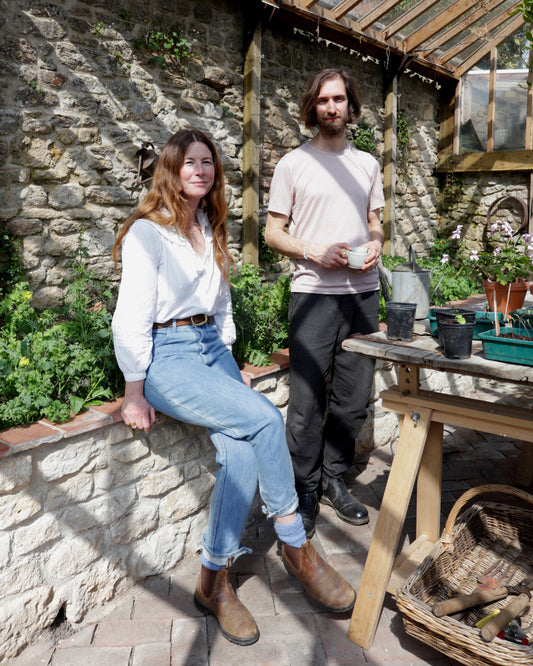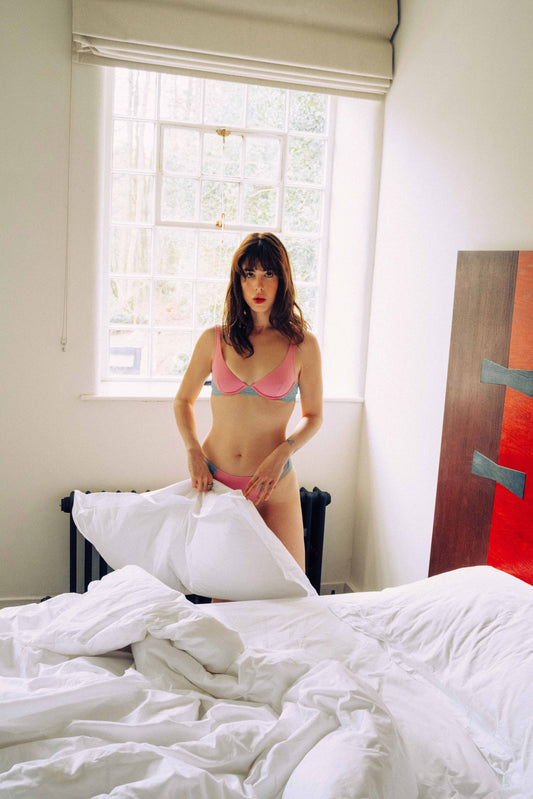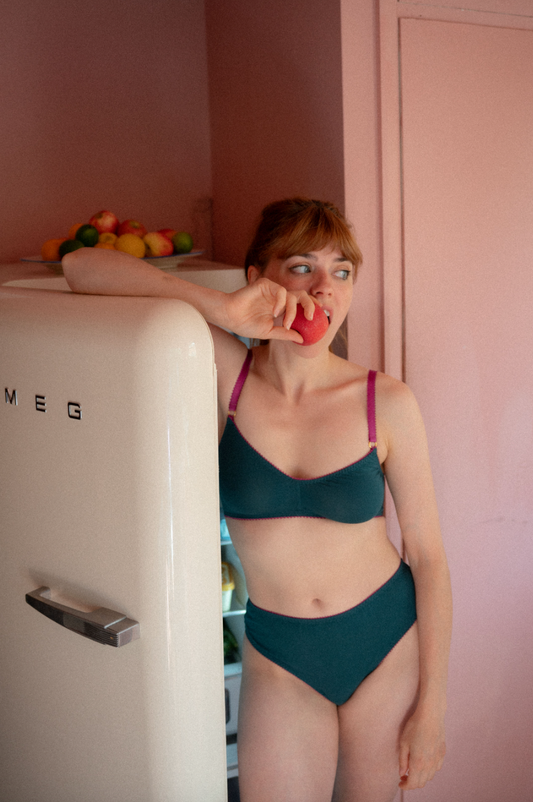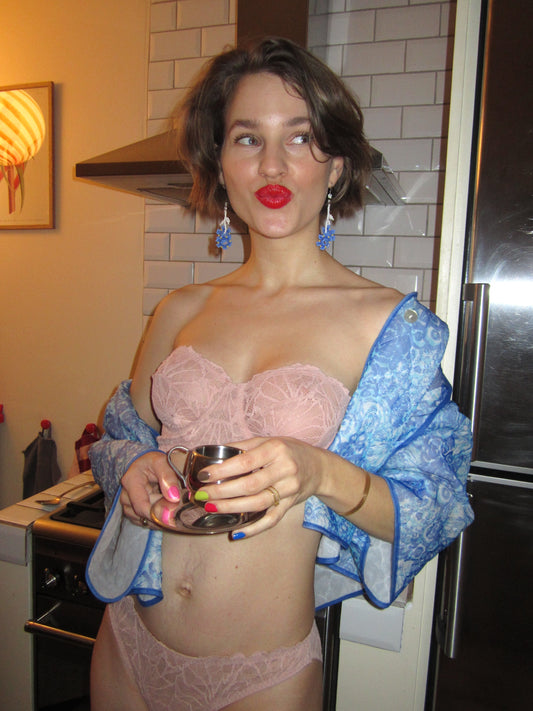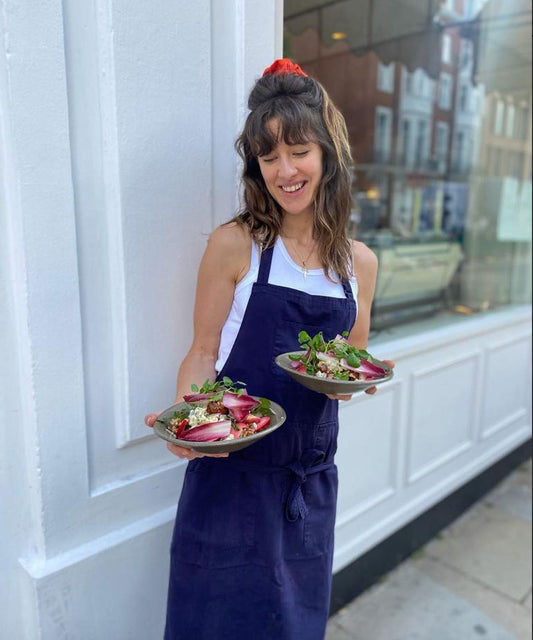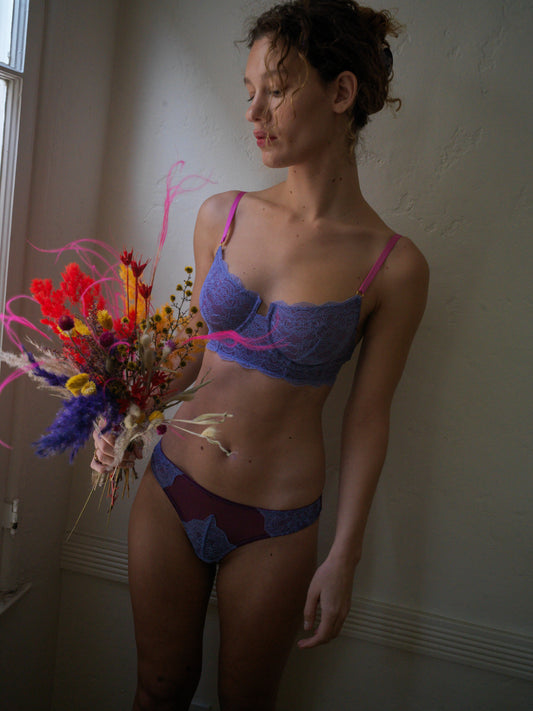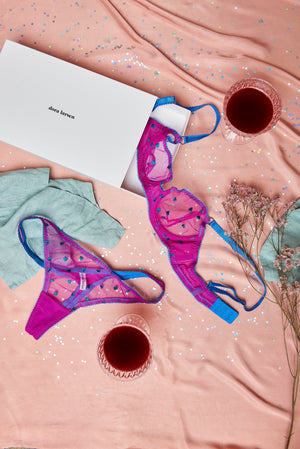We speak to content creator, entrepreneur and avid gardener, Chloe Plumstead, on growing food, and the impact gardening has had on her life.
What sparked your interest in growing your own food?
My Mum has grown her own tomatoes for as long as I can remember which planted the seed for homegrown very early on. As soon as I moved out, I started on potatoes & tomatoes and as the years have progressed, I’ve naturally experimented with different fruits, salads and veggies. I’ve just potted up 3 new patio fruit trees which I’m looking forward to growing on next year - an apple, a cherry and a pear. I try and keep a healthy mix of edibles and flowers for display; I want my garden to be productive and look beautiful, too.
How does growing making you feel, and how has it impacted your life?
I often find myself saying that gardening is a great exercise in being imperfect. You can learn, prepare and do everything by the book, but you can’t control Mother Nature and ultimately, a lot of important elements are outside of your control. For somebody like me who wants to get everything right, it’s quite liberating to relinquish that grip. The garden is a safe space for messing up and continuing on anyway, because it doesn’t really matter - who is going to know, other than yourself and the worms? The mistakes are part of the learning. Also nothing will remind you of the lifetimes before you and the lifetimes to come after quite like the patience to grow.

What methods have you chosen to follow when growing your own food that might make it different to the type of food you find in the supermarket, and why have you chosen to go by these methods?
I grow for pleasure and not for the greatest yield, so I favour interesting or heritage varieties over the most prolific fruiters - think purple potatoes and black tomatoes. I don’t use any chemical fertilisers or pesticides either so everything is organic. I always expect to lose a percentage of any plant to pests, but that’s natural - I’m in their outdoor space and it hurts the local ecosystem to sterilise it completely. Ultimately I believe we are stewards of our outdoor spaces; people have come before us and people will come after, so it’s our duty to take care of the soil health and the ecosystem and to have a positive impact.
In today’s society, how important do you think it is to be self-sustainable and how to you envisage the future when it comes to growing and trading food?
One of my lifetime goals is to be a self-sufficient as possible but it’s difficult in today’s society. One thing we can do, though, is grow our own food. Unless you have lots of space then it will never be enough to keep you going completely, but with fermenting, freezing, drying and pickling, you can certainly build up a good stash. Plus it’s a great life skill! It teaches you patience and forces you to respect nature. I’d love to see a greater celebration of community growing in future. Allotment spaces are difficult to acquire but if we had more of them and a greater access to them, then it would be amazing for the planet and people for more produce to be grown and sold locally.

Do you have to have your own garden to get involved in this movement, or are there other ways of getting involved?
There are lots of things you can grow indoors! Tumbling Toms come to mind, a dwarf, pot-friendly variety of tomato which produces loads of gorgeously juicy cherry fruits. Then of course you have herbs like basil which love a warm, sunny windowsill. There’s also hydroponic growing which is becoming ever more popular for fruits and veggies indoors, and many of the classic, outdoor veggies are coming to market with dwarf varieties - I recently picked up seeds for the first micro-aubergine which I can’t wait to grow in a pot next year. Even if you have the teeniest, tiniest space available, you can still grow micro greens which are the BEST garnish for any dish (and good for you, too).

What advice would you gift to those who’d love to start growing their own produce, but have no idea where to begin?
Nobody knows what they’re doing to begin with so you’re exactly where you’re supposed to be. Maybe choose a few herbs & veggies/fruits you like and start there. Dwarf varieties are a great starting point because they tend to fruit first year and they’re easier to manage. But honestly, just experiment and have fun. There is a wealth of knowledge on Instagram & YouTube so look into the plants you’re thinking of growing and then give it a go. Don’t try to be perfect! Just try to learn. (Also if you’re growing in pots, natural fertiliser like seaweed is your best friend. The nutrients in container compost are used up quickly so they’ll need feeding once a week after the first 6-8 weeks. But Google your plant before you dive in because some like to be fed differently than others.)
Don't forget, we're donating £5 from every order this weekend to Grow for Life, a charity that provides social and therapeutic gardening sessions for people affected by low confidence, anxiety, depression or isolation. Click here to shop.
Find out more about Chloe and her gardening tips here.




